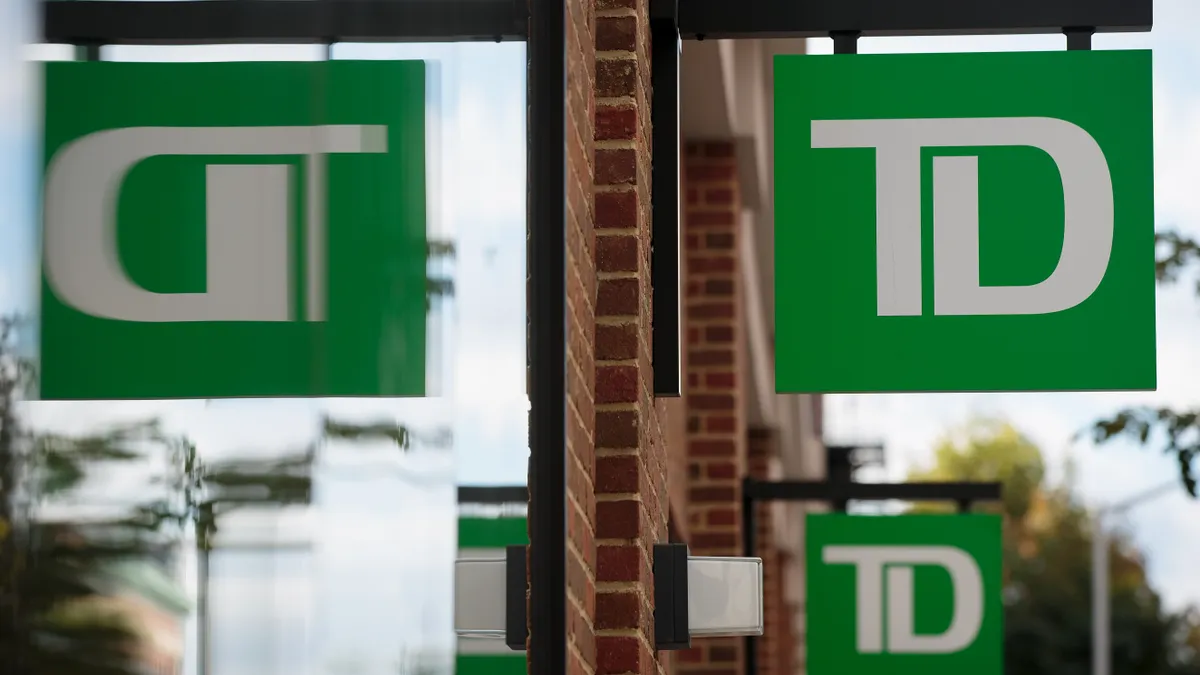“This is going to get tougher before it gets better,” TD CEO Bharat Masrani told roughly 1,800 attendees of a company town-hall meeting Monday, according to Bloomberg.
The town hall is one of a host of forums through which Canada’s second-largest bank has been addressing the revelation last week that its AML woes stemmed from a scheme through which criminals laundered at least $653 million tied to the drug fentanyl.
The damage-control effort has included some of the bank’s top deputies, including U.S. CEO Leo Salom.
“That is not a headline any institution would want, and for TD it is truly sobering,” Salom said in an internal memo to employees seen by The Globe and Mail. “This story, in particular, raised a lot of concerns because it linked the TD name to the illicit drug trade.”
Masrani spent Monday in Florida, meeting with TD’s U.S. regional leaders regarding the bank’s anti-money laundering work, according to Bloomberg.
In a memo, Masrani said TD has invested more than C$500 million ($365 million) to upgrade its AML program. That includes hiring new leaders and hundreds of employees, redesigning controls, building new processes, deploying new technology and implementing improved training, according to The Globe and Mail.
“We did not meet our expectations or our regulatory obligations to monitor, detect, report and respond to suspicious activity,” Masrani wrote. “As a result, criminals broke through our defenses and used the bank to launder money. … This is absolutely unacceptable.”
Masrani defended TD’s actions to a degree, noting that documents, video surveillance and forensic analysis the bank has given authorities “has helped, not only apprehend these criminals, but to actually get them in front of a court and be prosecuted.”
“We’ve been working with the U.S. Department of Justice investigators for some time now,” Masrani said, according to Bloomberg. “I should say our system did pick up a lot of this activity but not enough and we were just too slow.”
Calls for executive change
Masrani said TD has conducted an internal investigation and dismissed some employees for code-of-conduct violations.
But as the AML crisis broadens at TD, one target for turnover, increasingly, is Masrani himself.
Analysts have consistently asked, during earnings calls, for the bank to speak on succession plans.
“A bank of our size, scale and profile would have very robust succession plans — and we do,” Masrani said last month at the bank’s annual general meeting. “When the time comes, you will see that TD, like it has for many years, will see a seamless and terrific executive takeover for my position.”
John Aiken, an analyst for Jefferies, noted several high-level departures at TD over the past three years. Those include former U.S. CEO Greg Braca, former Canadian personal banking chief Teri Currie and newly minted Ally CEO Michael Rhodes.
“Repeated control failures call for a refresh of the management team,” Aiken said in a note, according to The Globe and Mail. “While there has been some reshuffling of the deck in the U.S. operations, these failures are likely to call for more dramatic changes at the executive committee level.”
TD’s stock fell 5.8% on Friday, after the fentanyl ties were reported. That’s the steepest one-day decline for the bank since 2020, potentially costing TD C$10 billion ($7.3 billion) in market capitalization, according to Bloomberg.
The bank disclosed last week — before the fentanyl report — that it is setting aside $450 million to cover the penalty from one of the three U.S. regulators investigating its AML shortcomings.
“As more information comes to light in TD’s U.S. AML probe, it becomes more damning,” Aiken said, according to The Globe and Mail. “Earlier in the week, it was our belief that concerns were approaching an ‘overblown’ status … However, with the bank allegedly a focal institution in a drug money laundering scheme, the worst case scenario has become more likely with TD potentially entering a lost decade: Growth in the U.S. will likely be constrained and the timeline for a fix is extended by several years.”
The “decade” figure is a callback to an enforcement action U.S. regulators handed HSBC in 2012 over AML and sanctions violations. The Federal Reserve terminated that order in 2022. It also came with a $2 billion penalty.
Aiken, too, implied it would be “simple math” to expect TD to be on the hook for $2 billion in penalties.
“However, as there is absolutely no certainty around how the regulators are going to proceed, the standard deviations around this estimate is likely measured in billions, rather than hundreds of millions,” Aiken wrote, according to Bloomberg.
During Monday’s town hall, Masrani said the bank is “looking at a global resolution.”
“But in the meantime, it is critical that we hold our heads high,” Masrani said. “I am deeply disappointed there were serious instances where we failed to stop these criminals. It goes against our values and everything we believe.”




















